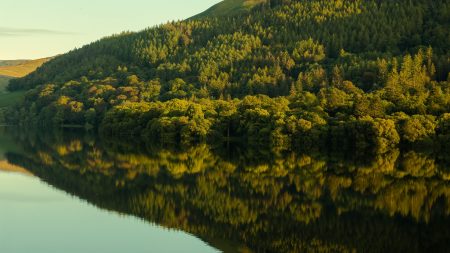Summary: Global Landscapes Forum Biodiversity Conference on One World – One Health
The Global Landscapes Forum (GLF) hosted a two-day online conference focussing on the relationship between the landscape approach to ecosystem management, and the One Health approach to public health. The resounding conclusion from the event was that human health must not just be an outcome of the landscape approach, but must also be an initial […] October 30, 2020
The Global Landscapes Forum (GLF) hosted a two-day online conference focussing on the relationship between the landscape approach to ecosystem management, and the One Health approach to public health. The resounding conclusion from the event was that human health must not just be an outcome of the landscape approach, but must also be an initial objective – i.e. there is a clear need to integrate One Health into the landscape approach.
One Health is the concept that the health of humans and ecosystems are all inextricably linked, and that deterioration of one will affect the integrity of the others. The landscape approach to ecosystem management (which is championed by the GLF) aims to reconcile competing objectives for land use to achieve a ‘triple bottom line’ balancing social, economic and environmental objectives. It is now recognised that sustainable development – including the support of ecosystems – is not possible without realising the One Health approach.
Nature-based solutions were a major topic of discussion during the conference because they are a key component of landscape approaches to ecosystem management. However, some speakers noted resistance to the use of the term NbS. Specifically, they were concerned that NbS is being used for greenwashing by large corporations (i.e. an excuse for not cutting emissions). We agree that unless underpinned by stringent commitments to decarbonize, there is a serious risk that the promotion of NbS as offsets can disincentivise the transition to a low carbon economy. However, this should not undermine the use of the term itself. The NbS community instead must continue to clarify the multiple benefits of NbS and be clear on the importance of investing in NbS in tangent with deep decarbonization. Other panellists raised concerns that the abundance of acronyms for green concepts can lead to confusion, and distract from the nuances of the actions themselves. Overall, the apparent consensus was that we should stop inventing new terms wherever possible, and stick to those that have already become widely used (such as NbS). In addition, avoiding using jargon where possible, and using language that means the most to specific stakeholders, would be advantageous. Greater effort is also needed to describe actions in detail, including all necessary safeguards, to avoid broad-stroke statements which do little to avoid actions that violate ecological and social integrity, equity and justice. Similar concerns were raised in a COP26 coalition session.
Some other key take-homes from the event were:
- The landscape approach is foundational to bending the curve on biodiversity loss, which is in turn critical to preventing future transfer of pathogens from animals to humans and the initiation of infectious disease crises.
- The landscape approach needs continued development and uptake. An important programme was highlighted: Collaborating to Operationalize Landscape Approaches for Nature, Development and Sustainability (COLANDS) which works in Indonesia and Zambia to monitor and analyse the success of different landscape approaches.
- The landscape approach should be integrated into the documentation or actions resulting from the post-2020 Global Biodiversity Framework.
- There is an urgent need for using indicators in addition to or instead of GDP to track success.
- To plug the funding gap on ecosystem protection, restoration and management we need a) global leaders to demand accountability of investors to promote ecosystem conservation and avoid greenwashing, and b) intermediaries between investors and those in rural communities so they can access cash more readily. For the GLF’s overview of green financing see here.
- Social, economic and health recovery cannot be prioritised over protecting and restoring biodiversity, because ‘if we don’t have nature, we don’t have an economy to recover’ – Christopher Knowles, advisor to the sustainable finance platform Resilience Landscapes.
Read the GLF summary of the conference here.
